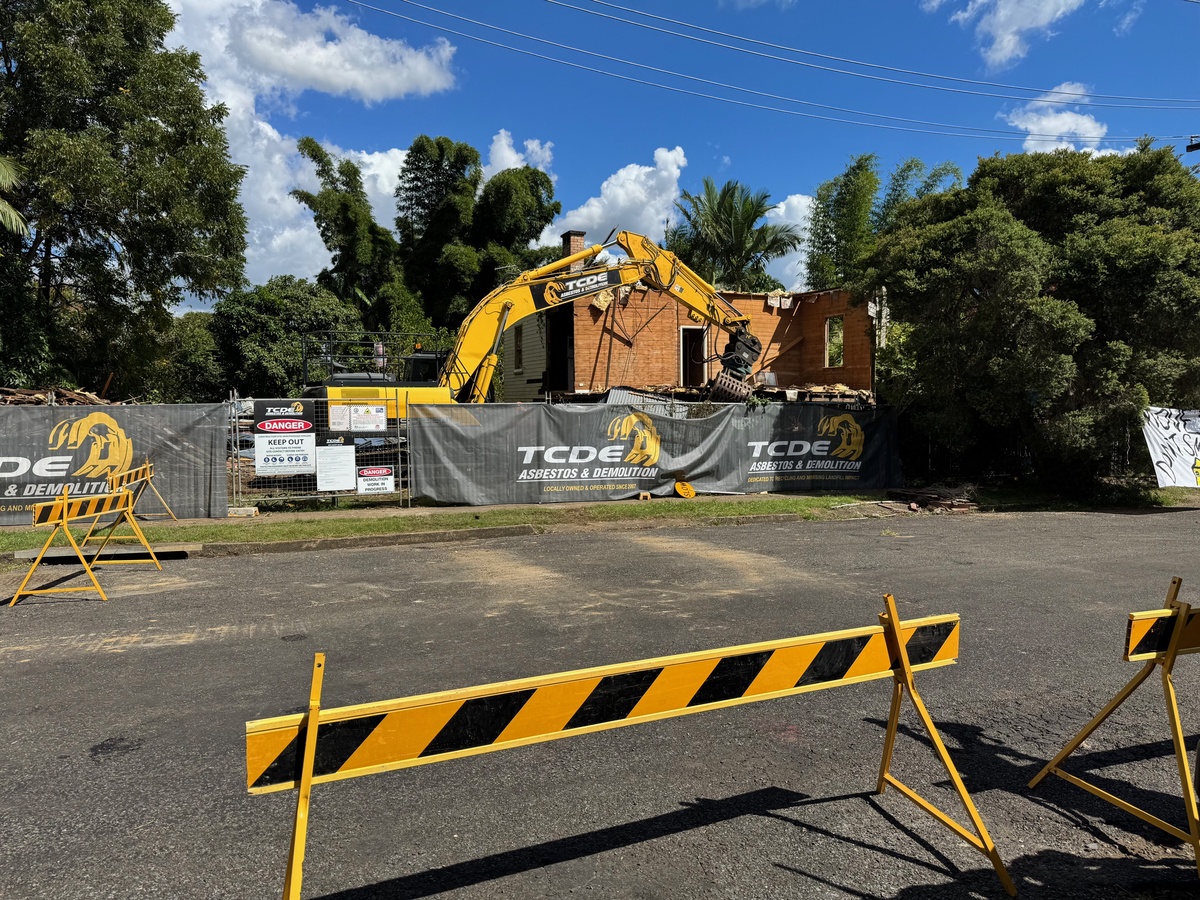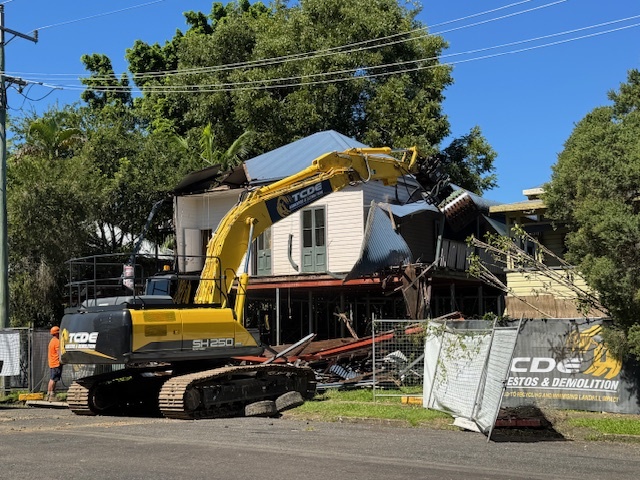Janelle Saffin on demolitions, Pine Street squatters and more in Talking Lismore
Simon Mumford
14 April 2025, 9:02 PM

Member for Lismore, Janelle Saffin, joined the Talking Lismore podcast to talk openly about issues that are affecting the Lismore community, such as house demolitions and the Pine Street squatters.
We started by talking about the community's preparedness for Tropical Cyclone Alfred, attributing it to the lessons learned from the devastating 2022 floods.
"We were so prepared. It was a joy to me to see it unfold," Ms Saffin said. She emphasised the proactive approach taken by authorities, including the SES, RFS, and local government, in ensuring community safety. Residents were kept informed through regular briefings, and the evacuation orders were issued based on detailed modelling and local knowledge. They were necessary to mitigate potential risks from downed power lines and trees.
The community's preparedness was evident in the way residents proactively packed up and secured their belongings, a stark contrast to the reliance on external guidance observed in previous years. Ms Saffin praised the Lismore Business Chamber for its role in promoting flood preparedness among local businesses.
When asked who interprets the data and makes evacuation decisions. Ms Saffin explained that is ultimately made by the SES, who analyse BOM modelling and consult with community leaders. The SES also incorporates local knowledge, drawing on the expertise of local residents within the organisation.
Ms Saffin didn't shy away from discussing the NSW Reconstruction Authority's house buyback demolitions. She acknowledged that while the demolitions were always planned, there could have been better communication around the process.
Ms Saffin emphasised the need for compassion and understanding as the community continues to heal from the trauma of the floods. She urged against politicising the issue, as it is important to tread gently and avoid using people as pawns in political campaigns.
"Demolitions were always going to happen, and that was made absolutely clear, even by David Witherdin and the Northern Rivers Reconstruction Corporation. Relocatable's were going to happen. His words 'by exception', meaning that people who wanted to relocate their house could choose to do it, and then allowed some gifting of houses. And a few people did that. Then, some houses would be sold. And we're seeing the first of 30 that's underway now, and there'll be more going up for sale, but we still need to assess some of them. I think there's over 300 still to be assessed for demolition or go for sale, okay, but some have been assessed for demolition, quite a few.

(A demolition on Baillie Street, North Lismore, last week)
"So that was always going to happen. Could that have been communicated better? Yes. And also, even when it is communicated as it was at different times, because we've had trauma, because it's disaster recovery, I know, and others know we have to keep saying it over and over and over.
"This is what's going to happen, whether we like it or not, and for someone who owned a home, lived in it, raised children, families, I know that it's their memories and their life. It all happened in that home. Now, a lot of those people have sold that home because they wanted to feel safer, and they've done that, but I understand their heart and head are still there, and a few of those people have rung us this week, or some have talked to me, and they know they are going to be demolished, but they needed to talk it through too. The feelings around it, but they knew they were to be demolished.
"It's wrong to politicise this issue because we're hurting, and to show genuine compassion in our community means that we tread gently. I try and tread gently because I understand that hurt in the community and to run a political campaign for partisan gain is unconscionable. That's how I see it. And people should not be pawns in this. People talk about my community, my community, well, I think they ought to rethink how they're engaging in my community.
"Some people said to me, great, Janelle, it's good to see the houses going, we need it because we need renewal. We don't want to keep looking at them.
"Others have come to me and our office and said, we want them gone. They remind us all the time of what happened. Even people who sold them."
Ms Saffin also talked about the future of vacant land in North and South Lismore following house buybacks, emphasising the need to honour the area's history and community.
"There's an old Indigenous history of North Lismore. There's the Italian community. We had the Italo Club, and it's now Marconi. Plus, we had the timber getters," she said.
She suggested potential uses for the vacant land. "I'd love a car boot market, where Richmond River High was, because we all love it. People will come from the region, and it's a commercial activity. And Steve's talked about a golf course. Whatever it is. But we can't move on while we've still got houses that need to be demolished, some that a few people want to move," she said.
Ms Saffin also highlighted her personal connection to the area, having lived in both North and South Lismore and experienced firsthand the impact of flooding. "I lived in North, so I did an interview as a northie in the Living Lab Project. I was over there with everyone, and I've lived in South as well. I've lived in flood areas most of my life. I love the areas, and so they're the things that we need to do," she said.
Ms Saffin also addressed the ongoing situation with squatters at Pine Street, who were recently in the Supreme Court. While she was unable to provide a specific date for the next hearing, she understood it would be in late April. "I was told that today was a directions hearing, and that's where everyone sorts out their paperwork and who's going to do what, and who's going to appear, those things. I don't know the exact date, but I think it might be a bit later in April, like in a week or two," she said.
Ms Saffin stated that the squatters could end the ongoing expenditure by vacating the premises, as they had been politely requested to do on numerous occasions. "The people who were squatting there could end that now they could they could leave. They could say, we're going to leave, which is what they were asked to do politely many times, and then they didn't," she said.
She highlighted the Resilient Homes Program's role as a mitigation and adaptation program rather than a housing program. "The Resilient Homes Program is a mitigation, adaptation program; it wasn't set up as a housing program. It wasn't set up as all of the things that some people are now demanding. That comes through other areas of government. There's been a long lag over a long period of time, particularly from 2011 on, with nothing happening here with housing at all. That's a fact. And it's in independent reports, and so we are doing things on housing," she said.
Ms Saffin talked about East Lismore, North Lismore, Cynthia Wilson Drive and Bristol Circuit as examples of what housing is to come from the government.
To hear the full podcast, click on the Talking Lismore podcast link.

